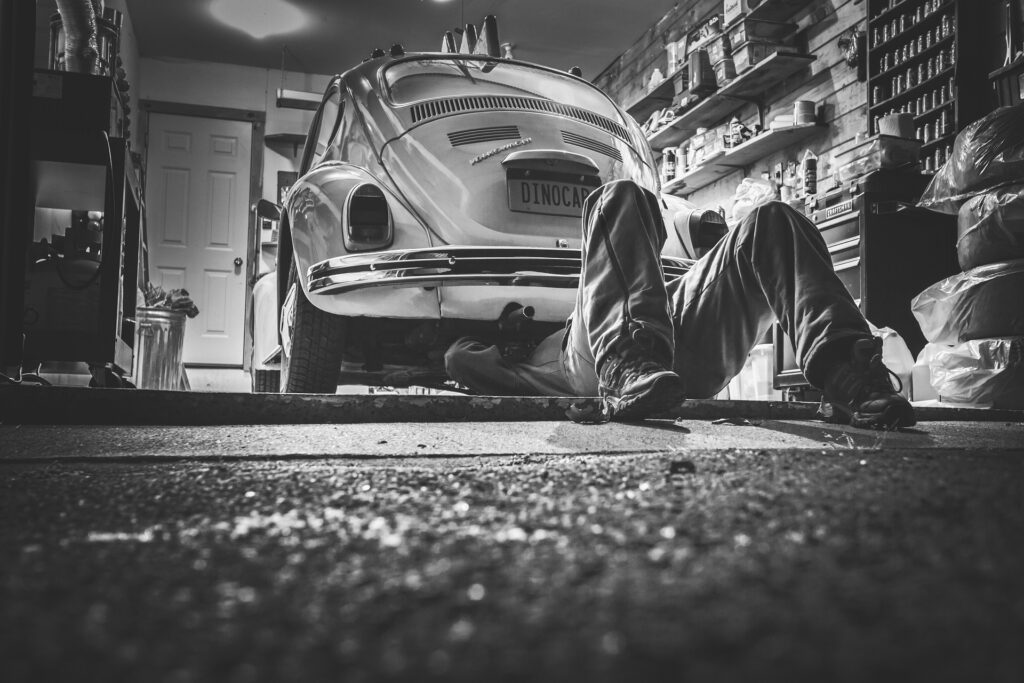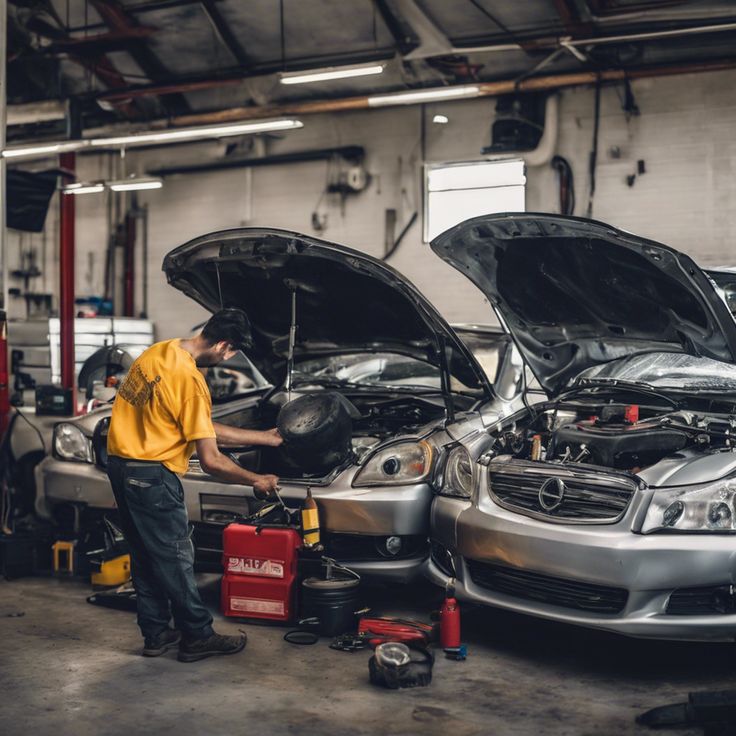Car Maintenance
Maintaining your car isn’t just about ensuring it runs smoothly; it’s about extending its lifespan, ensuring safety, and avoiding costly repairs. Proper car maintenance can significantly enhance your vehicle’s performance and reliability. In this comprehensive guide, we’ll dive deep into essential car maintenance tips, addressing everything from routine checks to seasonal care. Whether you’re a seasoned car owner or a newbie, this guide will provide valuable insights to keep your car in top condition.
Table of Contents
Why Car Maintenance Matters
Car maintenance is crucial for several reasons:
- Safety: Regular maintenance helps in identifying and fixing potential issues before they become serious problems. This ensures that your vehicle remains safe to drive, reducing the risk of accidents caused by mechanical failures.
- Longevity: Proper upkeep can extend the life of your vehicle. Regularly checking and servicing components like the engine, transmission, and brakes can prevent premature wear and tear.
- Performance: A well-maintained car performs better. From smoother acceleration to better fuel efficiency, maintenance plays a key role in ensuring that your car operates at its best.
- Cost Savings: Regular maintenance can save you money in the long run. Addressing small issues early can prevent them from escalating into major, expensive repairs. For informations on click here

Key Components of Car Maintenance
To keep your car running smoothly, it’s essential to focus on several key components. Here’s a detailed look at each:
1. Engine
The engine is the heart of your vehicle. Regular maintenance is critical to keep it in optimal condition.
- Oil Changes: Engine oil lubricates and cools the engine, ensuring it runs smoothly. Check your owner’s manual for the recommended oil change interval, typically every 3,000 to 7,000 miles, depending on your driving habits and type of oil used.
- Air Filter: The air filter prevents dirt and debris from entering the engine. A clogged air filter can reduce fuel efficiency and engine performance. Replace it every 12,000 to 15,000 miles or as recommended.
- Spark Plugs: Spark plugs ignite the air-fuel mixture in the engine. Worn-out spark plugs can cause poor acceleration and fuel efficiency. Replace them every 30,000 to 50,000 miles.
2. Transmission
The transmission is responsible for shifting gears and providing the right amount of power to the wheels.
- Transmission Fluid: This fluid lubricates the transmission and ensures smooth shifting. Check the fluid level regularly and change it according to your owner’s manual, typically every 30,000 to 60,000 miles.
- Transmission Filter: Some vehicles have a transmission filter that needs to be replaced periodically. Consult your owner’s manual for specific recommendations.
3. Brakes
Brakes are crucial for safety, so regular checks and maintenance are essential.
- Brake Pads: Brake pads wear down over time. Listen for squeaking or grinding noises, and have them inspected regularly. Typically, brake pads should be replaced every 25,000 to 50,000 miles.
- Brake Fluid: Brake fluid transfers force from the brake pedal to the brake components. Check the fluid level and condition regularly. Replace it every 2 to 3 years or as recommended.
4. Tires
Tires are the only contact between your car and the road, making their maintenance critical.
- Tire Pressure: Check your tire pressure monthly and before long trips. Properly inflated tires ensure better fuel efficiency and handling. Use a tire pressure gauge and adjust as needed.
- Tire Tread: Inspect the tread depth to ensure adequate traction. Replace tires with a tread depth of 2/32 of an inch or less. Consider rotating your tires every 6,000 to 8,000 miles to promote even wear.
- Alignment: Proper alignment ensures that your car drives straight and reduces tire wear. If your car pulls to one side or the steering wheel is off-center, get an alignment check.
5. Battery
A healthy battery is essential for starting your vehicle and powering electrical systems.
- Battery Terminals: Keep the battery terminals clean and free of corrosion. Inspect them regularly and clean if necessary.
- Battery Life: Most car batteries last about 3 to 5 years. Have your battery tested annually, especially if it’s approaching the end of its lifespan.
6. Cooling System
The cooling system prevents the engine from overheating.
- Coolant: Check the coolant level and condition regularly. Top up if needed and replace the coolant according to your vehicle’s maintenance schedule, typically every 30,000 to 60,000 miles.
- Radiator: Inspect the radiator for leaks and ensure it’s free from debris. Regularly flush and refill the radiator to keep the cooling system in good working order.

Seasonal Car Maintenance Tips
Different seasons pose unique challenges for your vehicle. Here’s how to prepare for each:
1. Winter
- Battery Check: Cold weather can strain your battery. Test its charge and replace if necessary.
- Tire Care: Consider switching to winter tires for better traction. Ensure they are properly inflated.
- Fluid Levels: Check and top up all fluids, including antifreeze, to prevent freezing and ensure proper engine performance.
2. Spring
- Check for Damage: Inspect your vehicle for any damage caused by winter conditions, such as cracks in the windshield or worn-out tires.
- Air Conditioning: Test your AC system to ensure it’s working properly before the hot weather sets in.
3. Summer
- Cooling System: Ensure the cooling system is functioning well to prevent overheating. Check coolant levels and radiator condition.
- Tire Pressure: Hot weather can cause tire pressure to increase. Check and adjust as needed.
4. Fall
- Prepare for Winter: Start preparing your car for winter by checking the battery, tires, and heating system.
- Inspect Lights: With shorter days and longer nights, ensure all your lights are functioning properly for better visibility.
DIY vs. Professional Maintenance
While many car maintenance tasks can be performed by yourself, some require professional attention. Here’s a quick guide:
- DIY: Oil changes, air filter replacements, and tire rotations can often be done at home with basic tools and a little know-how.
- Professional: Complex tasks like transmission repairs, brake servicing, and diagnostic work should be handled by professionals to ensure they are done correctly and safely.
Conclusion
Car maintenance is more than just a checklist; it’s a crucial part of vehicle ownership that ensures safety, performance, and longevity. By regularly checking and servicing key components, you can avoid costly repairs and keep your vehicle running smoothly. Whether you’re performing maintenance yourself or relying on a professional, staying on top of these tasks will help you enjoy a reliable and enjoyable driving experience.
Remember, a well-maintained car not only performs better but also contributes to a safer and more efficient road environment for everyone. So, make car maintenance a priority, and your vehicle will thank you for it with years of dependable service. Safe driving!
This guide should help you keep your vehicle in top shape and avoid common pitfalls. Regular car maintenance can save you time, money, and stress, making your driving experience much more enjoyable. Feel free to bookmark this guide for future reference and share it with fellow car enthusiasts!For informations on click here





